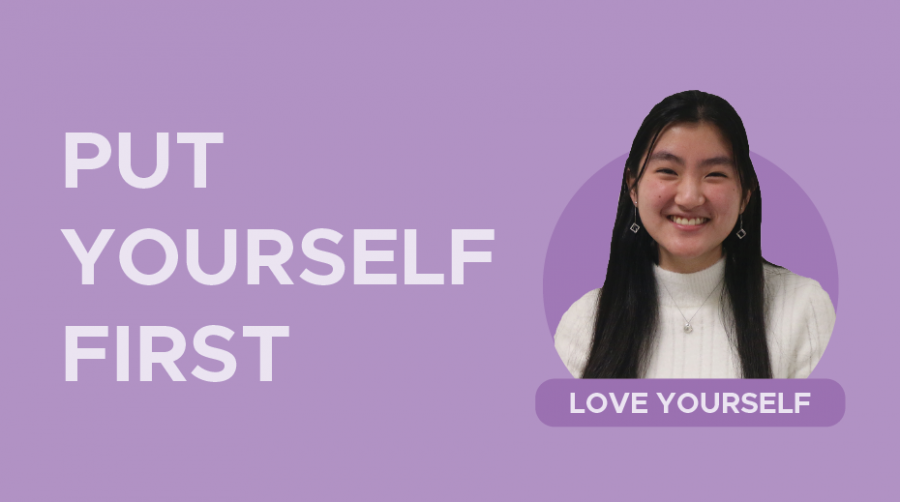I can’t sp eak for everyone but I think for most of us the past 11 months or so have been emotionally draining. In the midst of isolation, virtual learning and a deadly disease, the COVID-19 pandemic has brought about the perfect storm for new or worsened mental health struggles in teens and young adults.
eak for everyone but I think for most of us the past 11 months or so have been emotionally draining. In the midst of isolation, virtual learning and a deadly disease, the COVID-19 pandemic has brought about the perfect storm for new or worsened mental health struggles in teens and young adults.
According to the National 4-H Council, 70% of teens have struggled with mental health during the pandemic, and 64% believe living through COVID-19 will leave a lasting impact on their mental health.
Consequently, I’ve had my fair share of conversations about mental health and stress with my friends. I’d like to believe I’m a good listener and I’m there for my friends if they need it, but there are times when I find myself more emotionally exhausted than rewarded after listening to them vent.
It can feel overwhelming, and I’ve often felt guilty about that, wondering if I’m a bad friend for feeling that way. But over time, I’ve realized true friendship doesn’t require an unhealthy amount of selflessness. It does require healthy boundaries.
For a friendship to be mutually beneficial, it’s necessary to have a clear understanding of how much support you and your friend can provide each other and to be in tune with your emotions so that you both know when you need to take some time for yourselves.
Of course, you should always be supportive of your friends when you can, but it’s not selfish to also prioritize your wellbeing; in doing so, you’ll be doing your friends a favor, too.
I once read helping a friend should be like helping a fellow airplane passenger with an oxygen mask, and I think that’s a perfect analogy. If you don’t have your own oxygen mask on, you won’t be able to help someone else put on theirs; in the same vein, if you aren’t in the right state of mind to listen to other people’s struggles, you won’t be able to provide proper emotional support.
Trust me, it’s OK to say no to your friends. It’s OK to explain that while you’d love to help them, you aren’t in a position to give them the emotional support they need at the moment. However, you also shouldn’t completely leave your friends hanging when they’re in need.
Direct them to resources, other friends they trust or even a trained professional. I know it’s easier said than done, but don’t set yourself on fire to keep others warm. In these trying times, it’s important to check in with friends and family, but it’s just as important to check in with yourself.
The views in this column do not necessarily reflect the views of the HiLite staff. Reach Wendy Zhu at [email protected]
Click here to see more of Wendy Zhu’s work.




























![Keep the New Gloves: Fighter Safety Is Non-Negotiable [opinion]](https://hilite.org/wp-content/uploads/2024/12/ufcglovescolumncover-1200x471.png)
















































![Review: “We Live in Time” leaves you wanting more [MUSE]](https://hilite.org/wp-content/uploads/2024/12/IMG_6358.jpg)
![Review: The premise of "Culinary Class Wars" is refreshingly unique and deserving of more attention [MUSE]](https://hilite.org/wp-content/uploads/2024/12/MUSE-class-wars-cover-2.png)
![Introducing: "The Muses Who Stole Christmas," a collection of reviews for you to follow through winter [MUSE]](https://hilite.org/wp-content/uploads/2024/12/winter-muse-4.gif)
![Review: "Meet Me Next Christmas" is a cheesy and predictable watch, but it was worth every minute [MUSE]](https://hilite.org/wp-content/uploads/2024/11/AAAAQVfRG2gwEuLhXTGm3856HuX2MTNs31Ok7fGgIVCoZbyeugVs1F4DZs-DgP0XadTDrnXHlbQo4DerjRXand9H1JKPM06cENmLl2RsINud2DMqIHzpXFS2n4zOkL3dr5m5i0nIVb3Cu3ataT_W2zGeDAJNd_E-1200x884.jpg)
![Review: "Gilmore Girls", the perfect fall show [MUSE]](https://hilite.org/wp-content/uploads/2024/11/gilmore-girls.png)
![Review in Print: Maripaz Villar brings a delightfully unique style to the world of WEBTOON [MUSE]](https://hilite.org/wp-content/uploads/2023/12/maripazcover-1200x960.jpg)
![Review: “The Sword of Kaigen” is a masterpiece [MUSE]](https://hilite.org/wp-content/uploads/2023/11/Screenshot-2023-11-26-201051.png)
![Review: Gateron Oil Kings, great linear switches, okay price [MUSE]](https://hilite.org/wp-content/uploads/2023/11/Screenshot-2023-11-26-200553.png)
![Review: “A Haunting in Venice” is a significant improvement from other Agatha Christie adaptations [MUSE]](https://hilite.org/wp-content/uploads/2023/11/e7ee2938a6d422669771bce6d8088521.jpg)
![Review: A Thanksgiving story from elementary school, still just as interesting [MUSE]](https://hilite.org/wp-content/uploads/2023/11/Screenshot-2023-11-26-195514-987x1200.png)
![Review: "When I Fly Towards You", cute, uplifting youth drama [MUSE]](https://hilite.org/wp-content/uploads/2023/09/When-I-Fly-Towards-You-Chinese-drama.png)
![Postcards from Muse: Hawaii Travel Diary [MUSE]](https://hilite.org/wp-content/uploads/2023/09/My-project-1-1200x1200.jpg)
![Review: "Ladybug & Cat Noir: The Movie," departure from original show [MUSE]](https://hilite.org/wp-content/uploads/2023/09/Ladybug__Cat_Noir_-_The_Movie_poster.jpg)
![Review in Print: "Hidden Love" is the cute, uplifting drama everyone needs [MUSE]](https://hilite.org/wp-content/uploads/2023/09/hiddenlovecover-e1693597208225-1030x1200.png)
![Review in Print: "Heartstopper" is the heartwarming queer romance we all need [MUSE]](https://hilite.org/wp-content/uploads/2023/08/museheartstoppercover-1200x654.png)




